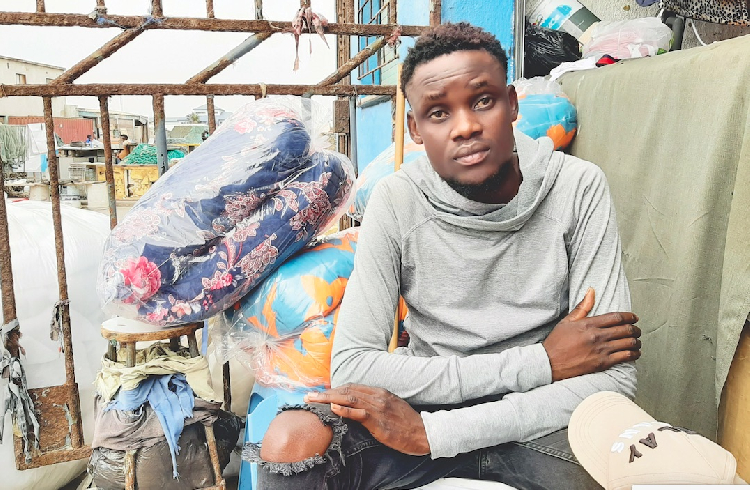MARIA Ndjembela and Paulus Wilbard (29) are among a number of people at Walvis Bay who recycle discarded foam matresses.
Ndjembela moved to Walvis Bay in 2012 to start a new life.
She sought employment at the town’s fishing factories, but life did not work out as planned and she had to fall back on her talent for styling hair.
Ndjembela was given chair space in her aunt’s sewing stall at the local hub for small and medium enterprises next to Walvis Bay’s old compound.
“Hairdressing here was tough because I needed to establish a client base first. I saw a man in the next stall making pillows, and they were selling. Pillows are an everyday need, and the ones we buy at shops don’t always last,” she says.
Pillow-making is one of the easiest start-up businesses, she says.
Her initial investment was only N$100, which went towards buying raw materials and fabric for pillow covers, as well as detergents, she says.
In addition, her aunt, who is a tailor, had to teach her how to cut fabric patterns and to sew.
“The rest depends on how fast you can learn and your dedication to grow your business. I have also learnt to listen to the clients and their needs. Some want a pillow that is not so puffed up, others want specific types of materials. As a business person you have to be flexible in your approach,” Ndjembela says.
She urges homeowners not to keep unutilised foam mattresses, but to donate them to those who can make a living from it.
Three stalls away from Ndjembela is Wilbard, who was born and raised at Walvis Bay.
He joined the pillow-making trade in 2021 after his mother, who is a tailor at the stalls, encouraged him to learn pillow-making from the experts so that he could start earning an income.
“I was unemployed, and she introduced me to the business. She gave me N$50 to buy foam from the local fishing factories,” he says.
With his savings, Wilbard bought the rest of the materials he needed.
He says he spent about N$200 on his initial set-up.
“It is hard to run this business, because a day can pass without anybody coming to your business. I am still growing my business, but marketing is one of the challenges,” Wilbard says.
He believes there are many opportunities that require little financial input, but mostly dedication and the will to succeed.
Email: bottomline@namibian.com.na
Stay informed with The Namibian – your source for credible journalism. Get in-depth reporting and opinions for
only N$85 a month. Invest in journalism, invest in democracy –
Subscribe Now!










